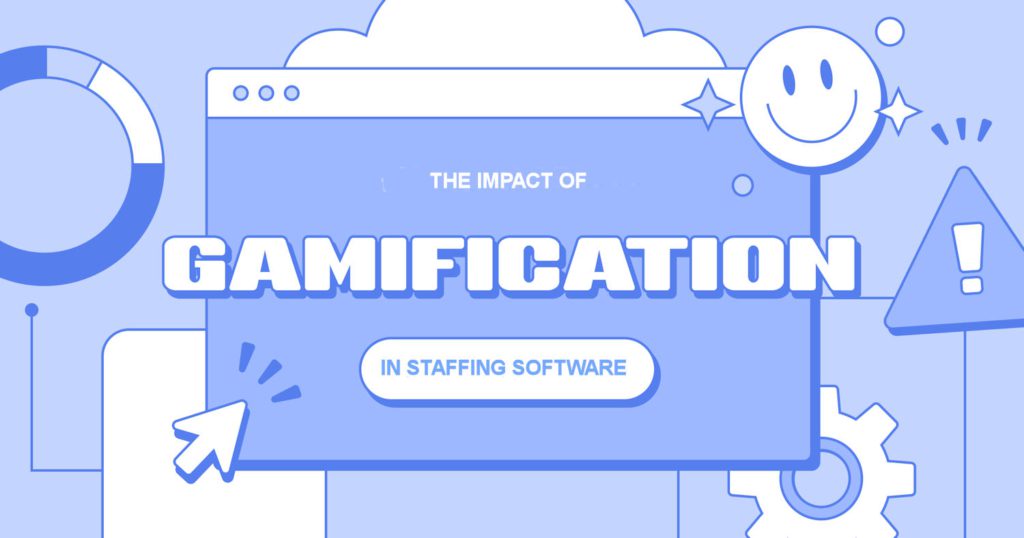In the paced world of talent acquisition, where the quest for top notch candidates never stops conventional recruiting methods often struggle to effectively engage and assess potential hires.
Enter gamification – an approach that incorporates gaming elements into non-gaming scenarios turning routine tasks into captivating experiences.
Within the staffing software sector gamification is swiftly proving to be a game changer reshaping how recruiters interact with and evaluate candidates in innovative ways.
Understanding the Role of Gamification in Staffing Software
At its essence gamification harnesses behavior to motivate individuals to exhibit desired actions by tapping into their fundamental drives for competition, accomplishment and acknowledgment. When implemented in staffing software this translates to creating experiences that make the hiring process more enjoyable and gratifying for both recruiters and candidates.
Engaging Candidates Through Gamified Interactions
job applications and assessments can often seem monotonous and detached leading candidates to lose interest or disengage. Nonetheless by incorporating components like quizzes, challenges and simulations, into the recruitment process staffing software can capture candidates attention and promote active engagement.
For example, of simply sending in a traditional resume job applicants could engage in a series of interactive challenges that assess their relevant skills and competencies for the position. These challenges offer recruiters an understanding of candidate’s abilities and allow applicants to showcase their talents in a more dynamic and immersive way.
Assessing Candidates with Precision and Insight
In addition to boosting engagement gamification improves the evaluation process by providing recruiters with data and insights into candidate’s performance and potential. By using assessments and simulations recruiters can evaluate problem solving skills, teamwork abilities and cultural fit while giving candidates real time feedback on their performance.
Furthermore, gamified assessments can replicate real life job scenarios to help recruiters understand how candidates handle pressure and adapt to challenges. This predictive feature helps recruiters make hiring decisions resulting in positive outcomes for both candidates and employers in the long run.
Benefits Extend Beyond Recruitment
The impact of incorporating gamification into recruitment software goes beyond the hiring process. By creating an interactive recruitment experience organizations can strengthen their employer brand and attract top talent interested, in innovative and forward-thinking companies.
Moreover, incorporating gamification can enhance employee retention rates by ensuring that new hires truly align with the company’s culture and values. By evaluating candidates’ compatibility with the organization from the start recruiters can lower turnover rates and boost overall employee satisfaction and performance.
Adopting a Modern Approach to Hiring
As technology advances the recruitment process must also evolve to meet the evolving needs of both job seekers and employers. Utilizing gamification in recruitment software allows organizations to offer an engaging and effective hiring experience that identifies top talent for various roles.
Addressing Obstacles and Leveraging Opportunities
While leveraging gamification in recruitment software offers advantages it’s crucial to address potential challenges that may surface during its implementation. One key challenge involves ensuring that gamified elements are inclusive and accessible to all candidates regardless of their background or abilities. Creating games and simulations that cater to skill sets and learning preferences is vital for providing equal opportunities for all applicants.
Furthermore, striking a balance between gamification elements and maintaining professionalism, in the recruitment process is essential.
While interactive experiences should be fun and captivating, they must also focus on assessing candidates’ skills and suitability for the job. Achieving this balance requires coordination and cooperation among recruiters, HR professionals and developers to ensure that gamification enhances rather than hinders the recruitment process.
The Future Outlook; New Innovations and Opportunities
Looking forward the potential for innovation and growth in gamification within staffing software is promising. Advancements in intelligence and machine learning will allow for even more advanced interactive experiences tailored to each candidates unique preferences and abilities.
Additionally incorporating reality (VR) and augmented reality (AR) technologies into staffing software could transform how candidates interact with the recruitment process. Picture candidates engaging in VR simulations that mirror real world work settings offering recruiters valuable insights into candidates potential performance and fit within the company.
As organizations prioritize talent acquisition as a strategic focus the demand for inventive solutions like gamification, in staffing software will only rise. By embracing these technologies and using them to create engaging recruitment experiences companies can gain an advantage in attracting top talent in today’s dynamic business environment.
Conclusion
In the changing world of hiring incorporating gamification into recruitment software marks a significant shift in how recruiters interact with and assess candidates. By using game design principles to develop immersive experiences companies can turn the hiring process into a lively and captivating adventure for both candidates and recruiters.
The impact of gamification in recruitment software is clear from boosting candidate engagement to providing insights for smart hiring choices. As organizations prioritize innovation and efficiency in their recruitment strategies gamification will undoubtedly shape the future of talent acquisition.
In this age of technological progress those who adopt gamification in recruitment software will not only stay ahead but also discover new ways to attract, evaluate and retain top talent in a competitive market. The time is now to embrace the potential of gamification in recruiting as we move toward an engaging, insightful and efficient approach, to talent acquisition.
